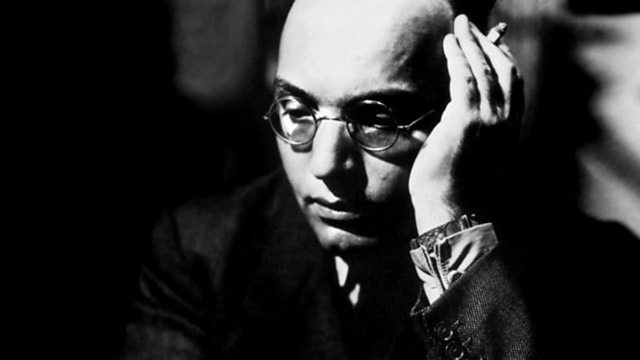Kurt Weill
The life and works of controversial German composer Kurt Weill.
Donald Macleod explores the life and work of Kurt Weill, beginning with the composer’s formative years. He then turns to Weill’s move to Berlin, where he immersed himself in the artistic community, meeting and working with some of the most influential names of the day, including Bertholt Brecht. The Weimar Republic's golden years were good to Weill. But by the early 1930s the landscape had changed dramatically. Unemployment was causing real hardship and he recognised there was a demand for a different kind of musical theatre.
Next, Donald Macleod focuses on how Weill's voluntary exile from Germany affected his music. Just two days after Hitler took office Kurt Weill packed a suitcase and moved to Paris. He had turned his back on Germany by choice and he would never return. His musical development would now be determined by a completely different set of rules.
Donald Macleod concludes his exploration of the life and work of Kurt Weill, by exploring how he established himself as a successful Broadway composer. Although Weill was a respected composer of musical theatre in Europe, his reputation wasn't widely known in the United States. It didn't deter him from moving there and he was able to win audiences over and enjoy success on Broadway.
Duration:
Credits
| Role | Contributor |
|---|---|
| Composer | Kurt Weill |
This clip is from
Featured in...
![]()
The Story of Music in 50 Pieces: Further Listening—Howard Goodall's Story of Music
More programmes related to the series: The Story of Music in 50 Pieces
More clips from Composer of the Week
-
![]()
Wrth fynd efo Deio i Dywyn (trad.) arr. Jayne Davies
Duration: 01:46
-
![]()
Lisa lΓΆn (traditional) , arr. Jayne Davies
Duration: 03:12
-
![]()
Morfydd Owen's Llwyn Owen, arr. Edward-Rhys Harry
Duration: 05:17
-
![]()
Blacklisted!—Sofia Gubaidulina (b 1931), An Incorrect Path
Duration: 01:21







